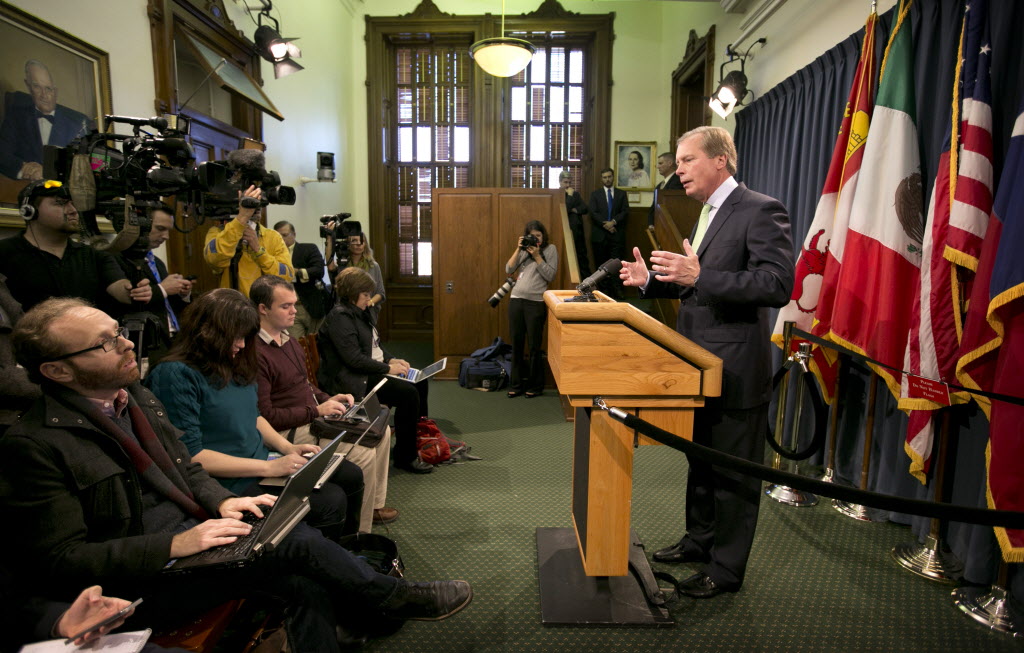
(AP Photo/Gerry Broome)
AUSTIN—It’s a winning week for the state lotto.
Lawmakers have considered phasing out the lottery, but in a new report a committee studying the issue recommended that the Legislature avoid its elimination because it would leave a hole in the state budget.
“The loss of state funding for education and other valuable programs, and the loss to Texas businesses, would be gravely detrimental to the state,” the report said.
According to the report, the Texas Lottery has contributed more than $22 billion in state revenue since it began in 1991, with $17 billion of that going to public schools. The game has brought in nearly $40 million to programs that support veterans and more than $176 million to the UTMB teaching hospital and other state programs, the report said.
In 2013, lawmakers spontaneously voted to abolish the lottery. House leaders quickly convinced members to reconsider, noting the multi-billion dollar gap that would be left in the budget.
The House eased off, voting for the continuation of the lottery and the Texas Lottery Commission, but demanded a joint committee be formed to study the impact of eliminating the games.
Lottery backers argue that the games are voluntary and that the tax revenue generated from ticket sales is too valuable to lose. Critics say state resources shouldn’t be used to promote gambling and call the lottery a hidden tax on the poor.
The 10-member committee sided with the former, apparently, but made recommendations that attempt to address some of the opponents’ concerns, including the possibility of disproportionate sales to poorer Texans.
– ”The Legislature should instruct the Texas Lottery Commission to include a study of geographical lottery sales and retailer penetration by zip code, as part of its contracted demographics study, to gain better insight into the demographics of lottery players.”
– ”The Legislature should instruct the Texas Lottery Commission to conduct an external study of its advertising media expenditures every other year to ensure lottery advertising is not targeted towards any specific demographic.”
The committee also recommended discontinuing print advertisements.
After concerns were raised about some charities receiving too little from charitable bingo games, lawmakers recommended the Legislature impose a minimum payout for charities and grant the lottery commission authority to cap individual payouts, among other things.












